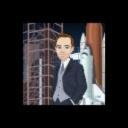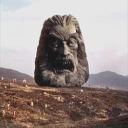Yahoo Answers is shutting down on May 4th, 2021 (Eastern Time) and beginning April 20th, 2021 (Eastern Time) the Yahoo Answers website will be in read-only mode. There will be no changes to other Yahoo properties or services, or your Yahoo account. You can find more information about the Yahoo Answers shutdown and how to download your data on this help page.
Trending News
Why do we assume the universe follows our physics?
Let's first get this out of the way: I'm stupid. I'm 17 and have no real knowledge or grasp of physics or the universe. But I have questions. And I like to pretend I'm smart.
When people talk about the Big Bang Theory, most supporters don't know how "something can come from nothing", and most people against it argue that exact point.
Well how do we know the center of our universe follows the physics we've outlined? Has data been collected? Has the data made sense in a way that correlates to our understanding of physics?
My knowledge of this goes as far as AP Chemistry (never taken a Physics or Astronomy course) and listening to people like Neil Degrasse Tyson and Dr. Amit Gowami (but not understanding them lol)
7 Answers
- 8 years agoFavorite Answer
Well... in short, we don't *know* that gravity acts the same, or that the weak force is as strong here as it is 14 billion light years from here, or that oxygen will burn hydrogen to form water everywhere.... we can only assume that, what rules apply in *our* corner of the universe, applies to *all* corners of the universe.
By and large, we see that it does - we see planets going around other stars, we see black holes eating objects and spitting out xrays, and we see galaxies spinning like they should - although.... there's some stuff we don't understand. Like, *why* universal expansion is accelerating. Or why galaxies spin faster than they should. Both of these effects have been given names - Dark Energy and Dark Matter, respectively...
But, if the rules of physics changes from place to place (which.... it could....), that means that a lot of what we *do* see is unexplained as well.
Until we *go* to those places, and test the same rules we have here - we won't know for sure... but, by observation, we can pretty much guess that the same rules here apply out there - at least, so far.
- Ottawa MikeLv 68 years ago
First, the Big Bang Theory starts with a singularity and its inflation into where we are today. It doesn't explain where that singularity came from. That's not part of the theory. You're right that we don't know how something came out of nothing but that question is not part of the Big Bang.
The Big Bang theory and the universe do follow the basic of the physics we have discovered thus far. There are still some holes like why the universe is expanding and accelerating. This explanation is currently being posed as dark energy although we don't have any measurements or observations of that yet. As well, the observable mass of the universe is lower than we would expect using our current physics and observations. This is currently explained as dark matter although like dark energy we don't have any measurements or observations of it yet.
You perhaps have too grand of an idea of what we know about physics. There is much that is unknown. However, what we do know has been very useful to us, especially engineers who have built bridges and cars and spaceships and smart phones all using the basics of physics and thermodynamics.
- Alpha BetaLv 78 years ago
Because we can observe the universe, and take measurements, and we see that other places out there behave the same way as everywhere else.
As for the big bang, the easiest way to get your head around this is that "nothing" could be defined as potential. Further, at a quantum level, actual particles pop in and out of existence all the time. This has been indirectly measured (the space between quarks for example). So given this, it's not difficult to accept that a universe can also pop into existence.
- Campbell HaydenLv 78 years ago
We 'assume' so many things because our knowledge base,
and all that we know, are all that we have.
We therefore reference everything we see and find, within the framework
of that which we know: in the mindset of 'our' understanding.
When we push the limits of understanding, and make new allowances
for what 'may be' or 'what has just been found', undiscovered possibilities
arise .... as well as new and required thought to understand it.
Right Now, the only thing we CAN do is assume that the Universe follows what
we currently know.
When our knowledge of the Universe changes, physics may have to change as well.
- How do you think about the answers? You can sign in to vote the answer.
- KennyBLv 78 years ago
Simplistically, everything we can see and measure appears to behave as it were operating under the same laws as we observe on earth.
It is this "failure" to find contradictory evidence of alternative physics that causes us to assume that the universe plays by only one set of rules.
- ZardozLv 78 years ago
We don't. We attempt to make our physics follow the Universe.
.
Source(s): [n] = 10ⁿ





